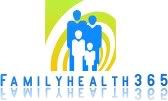
Alternative Names
Acne vulgaris; Cystic acne; Pimples; Zits
Causes, incidence, and risk factors
Acne occurs when tiny holes on the surface of the skin, called pores, become clogged. Each pore is an opening to a canal called a follicle, which contains a hair and an oil gland. Normally, the oil glands help keep the skin lubricated and help remove old skin cells. When glands produce too much oil, the pores can become blocked, accumulating dirt, debris, and bacteria. The blockage is called a plug or comedone.
The top of the plug may be white (whitehead) or dark (blackhead). If it ruptures, the material inside, including oil and bacteria, can spread to the surrounding area and cause an inflammatory reaction. If the inflammation is deep in your skin, the pimples may enlarge to form firm, painful cysts.
Acne commonly appears on the face and shoulders, but may also occur on the trunk, arms, legs, and buttocks.
Acne is most common in teenagers, but it can happen at any age, even as an infant. Three out of four teenagers have acne to some extent, probably caused by hormonal changes that stimulate oil production. However, people in their 30s and 40s may also have acne.
Acne tends to run in families and can be triggered by:
* Hormonal changes related to menstrual periods, pregnancy, birth control pills, or stress
* Greasy or oily cosmetic and hair products
* Certain drugs (such as steroids, testosterone, estrogen, and phenytoin)
* High levels of humidity and sweating
Despite the popular belief that chocolate, nuts, and other foods cause acne, research does not confirm this idea.
Symptoms
* Blackheads
* Crusting of skin eruptions
* Cysts
* Pustules
* Redness around the skin eruptions
* Scarring of the skin
* Whiteheads
Signs and tests
Your doctor can diagnose acne based on the appearance of the skin. Testing is usually not required.
Treatment
Take the following self-care steps to lessen the effects of acne:
* Clean your skin gently with a mild, non-drying soap (such as Dove, Neutrogena, or Basics). Remove all dirt or make-up. Wash once or twice a day, including after exercising. However, avoid excessive or repeated skin washing.
* Shampoo your hair daily, especially if it's oily. Comb or pull your hair back to keep the hair out of your face. Avoid tight headbands.
* Try not to squeeze, scratch, pick, or rub the pimples. Although it might be tempting to do this, it can lead to skin infections and scarring.
* Avoid touching your face with your hands or fingers.
* Avoid greasy cosmetics or creams. Look for water-based or "non-comedogenic" formulas. Take make-up off at night. Non-comedogenic products have been tested and proven not to clog pores and cause acne.
If these steps do not clear up the blemishes to an acceptable level, try over-the-counter acne medications. These products are applied directly to the skin. They may contain benzoyl peroxide, sulfur, resorcinol, or salicylic acid. They work by killing bacteria, drying up the oil, and causing the top layer of your skin to peel. They may cause redness or peeling of the skin.
If pimples are still a problem, a dermatologist can prescribe stronger medications and discuss other options with you.
Prescription medicines include:
* Oral antibiotics (taken by mouth) such as minocycline, doxycycline, tetracycline, erythromycin, and amoxicillin
* Topical antibiotics (applied to the skin) such as clindamycin, erythromycinm or dapsone
* Retinoic acid cream or gel (Retin-A) and isotretinoin pills (Accutane) -- pregnant women and sexually active adolescent females should NOT take Accutane, as it causes severe birth defects. Women taking Accutane must use two forms of birth control before starting the drug and enroll in the iPledge program.
* Prescription formulas of benzoyl peroxide, sulfur, resorcinol, salicylic acid
* A pill called spironolactone may help women with hormonally controlled acne.
* A laser procedure called photodynamic therapy may also be helpful.
Birth control pills can sometimes help clear up acne. (In some cases, though, they may make it worse.)
Your doctor may also suggest chemical skin peeling, removal of scars by dermabrasion, or removal, drainage, or injection of cysts.
A small amount of sun exposure may improve acne. However, excessive exposure to sunlight or ultraviolet rays is not recommended because it increases the risk of skin cancer.
Expectations (prognosis)
Acne usually subsides after adolescence, but may last into middle age. The condition generally responds well to treatment after 6 - 8 weeks, but may flare up from time to time. Scarring may occur if severe acne is not treated. Some people, especially teenagers, can become significantly depressed if acne is not treated.
Complications
Possible complications include:
* Changes in skin color
* Cysts
* Damage to self-esteem, confidence, personality, and social life
* Permanent facial scars
* Side effects of Accutane (including very dry skin and mucus membranes, high triglyceride levels, liver damage, and birth defects in an unborn baby; call your doctor right away if you become pregnant while taking this drug)
* Side effects of other medications
Calling your health care provider
Call your doctor or a dermatologist if:
* Self-care measures and over-the-counter medicine have not helped after several months
* Your acne is severe (for example, you have lots of redness around the pimples or you have cysts) or getting worse
* You develop scars as your acne clears up
Call your pediatrician if your baby has acne that does not clear up on its own within 3 months.
References
Acne, rosacea, and related disorders. In: Habif TP, ed. Clinical Dermatology. 5th ed. Philadelphia, Pa: Saunders Elsevier; 2009:chap 7.
Adam.








0 comments
Post a Comment
[▼/▲] More Emoticons